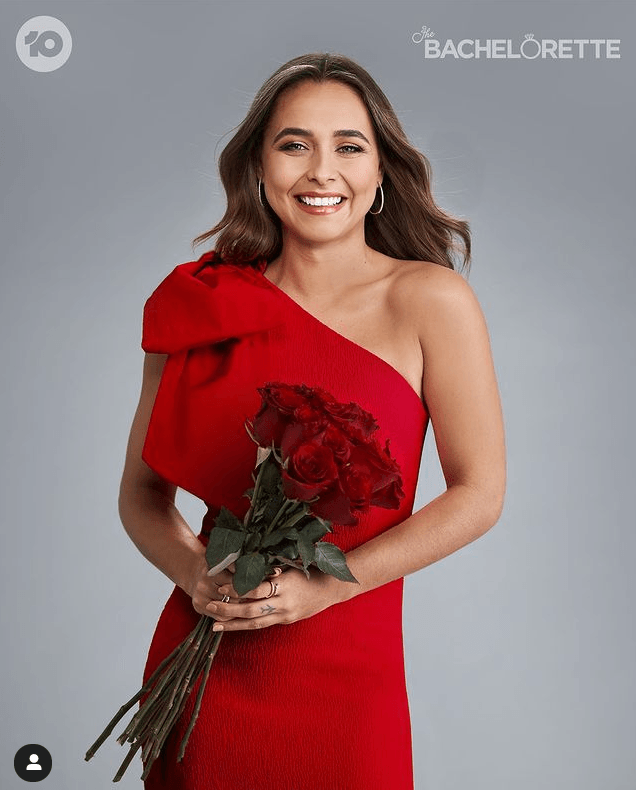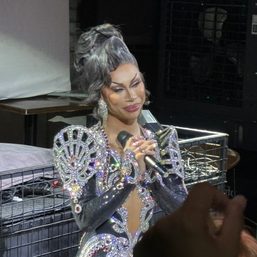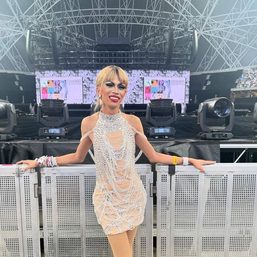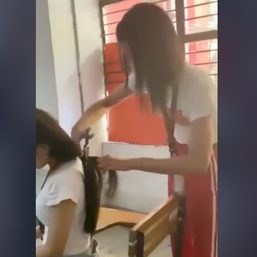SUMMARY
This is AI generated summarization, which may have errors. For context, always refer to the full article.

As the first bisexual star of hit global dating show The Bachelor, Brooke Blurton said she is proud to boost LGBT+ representation on mainstream television with her lead role in Australia’s new edition of the series.
Chosen as The Bachelorette, a spin-off from the long-running US reality TV show The Bachelor, in which the star chooses who to date, Blurton said she is “so happy” bi people are finally being accepted.
“I’m so proud and I’m so happy this is happening,” said Blurton, who, as a Noongar-Yamatji woman from Western Australia, is also the show’s first Indigenous Bachelorette.
“I’m absolutely so ready for it and I think that I’m just excited for that exposure to how beautiful the community is,” Blurton, 26, told the Thomson Reuters Foundation.
The Bachelor, now in its 25th season in the United States, first aired in 2002. The franchise has since been sold around the world, with 37 countries from Croatia to South Africa producing versions of the show.
But until Blurton was announced as Australia’s Bachelorette, the show has been exclusively heterosexual, with a male or female protagonist picking from a dating pool made up of the opposite sex.
The new show, which airs in Australia later this year, will have a mixed pool of both men and women.
“I don’t really focus on the gender of a person and I’ve always been very open that I don’t have a preference,” said Blurton, who previously appeared as a contestant on The Bachelor Australia in 2018, but left without finding love.
“It’s always genuinely the internal traits that people carry, how they hold themselves, how much compassion and empathy they have,” said Blurton, a youth worker.
LGBT+ representation in mainstream television or film has dipped in recent years.
According to rights group GLAAD’s 2021 Where We Are on TV survey of US television, 9.1% of regular characters in primetime TV slated to appear in 2021 are LGBT+ – down from 10.2% last year.
However, dating shows have been more open to bisexual representation. Programs such as Britain’s The Bi Life and MTV’s Are You The One? have previously featured mixed dating pools of both men and women.
Born in Perth in Western Australia, Blurton has been open about her “tough” childhood, including her mother’s suicide, surviving sexual abuse and being made homeless at 15.
She became an ambassador for suicide prevention charity R U OK? in 2019 and has worked as an Aboriginal education coordinator.
“When I look back at the younger Brooke, and what she would have loved, I hope I’m doing exactly that,” Blurton said.
“Being queer, and also navigating being Aboriginal, and navigating Western society … I’m breaking down so many barriers.” – Rappler.com
Add a comment
How does this make you feel?
![[Rappler Investigates] Dangers of TikTok](https://www.rappler.com/tachyon/2024/04/dangers-tiktok-april-18-2024.jpg?resize=257%2C257&crop=309px%2C0px%2C1080px%2C1080px)




There are no comments yet. Add your comment to start the conversation.